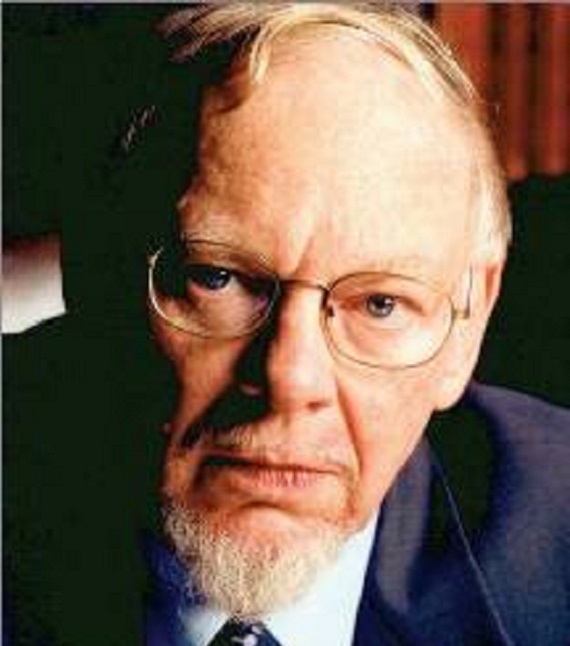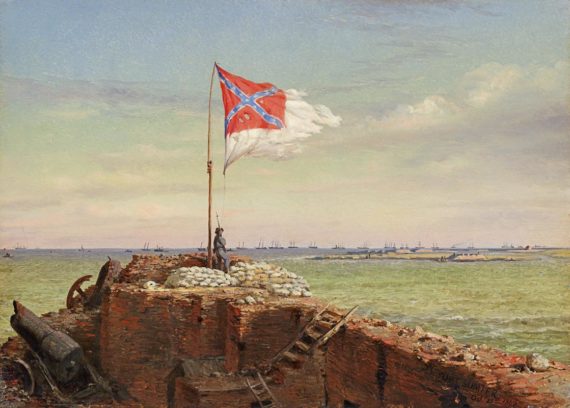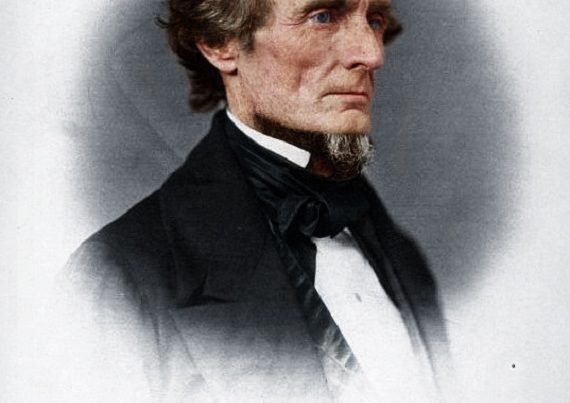
I hope you all enjoyed Part 1 of my interview with Dr. Clyde Wilson. In this installment, the Carolina lion talks about his years in Chapel Hill, decimates modern higher “education,” explains his journalistic background, discusses his seminal academic work, gives Calhoun his due, and even offers some advice to today’s students.
DM: Was your bachelor’s degree in journalism? And what about your M.A., was that in history or journalism?
CW: My first two degrees were in journalism, or as they call it now, “Media Arts,” or some such thing. I wanted a career in writing. I spent two years as a frontline reporter in Charlotte and Richmond. My ambition to be an editorial writer did not come about, but it was really good experience. They were afternoon papers with very short deadlines, which required sharp thinking and quick clear writing.
Most important for a future historian was the chance to see public affairs up close at the local and state level. I found out that mayors, judges, police chiefs, bureaucrats, and visiting celebrities were simply people like the rest of us and often not even very good or smart people. And that what they said and did was usually not disinterested and benevolent.
“I found out that mayors, judges, police chiefs, bureaucrats, and visiting celebrities were simply people like the rest of us and often not even very good or smart people.”
DM: Do you think there are any daily newspapers of value, or are they all leftist echo chambers? What do you see as the future of journalism? Where should people go to find truth?
CW: The old-fashioned reporters I worked with in the early ’60s, some of whom had not even been to college, were realists and told it like it was as far as they were allowed. They were real people and good writers. They would laugh out of court the “reporters” of today. Later, during the ’80s and ’90s, when I was somewhat notorious as a secessionist, I met many reporters. It is hard to imagine a more ignorant lot. They already have preconceived labels and are unable to see what is in front of them. They all want to be TV anchors.
Interestingly, after I had left the field, I was offered an editorial writing post at two significant papers, including the Washington Times when it was first starting up. By then, I did not want to make the move. I recommended to The Times my classmate Sam Francis. He took the job and became the best writer they had, winning several prizes. But then the neocons took over and fired him at the top of his game. He was too independent-minded and showed up their mediocrity.
I am glad that I resisted the temptation to go back to the newspapers. They are now dying institutions, worse than useless. They would not even exist except for department store ads. Believe it or not, there was a time when local papers were real forces. They had editorial writers who could really think. Has there been an article or editorial in your local paper in the last 20 years worth reading? Of course, electronic media have done them a lot of damage, but the big problem is that they are all chain-owned, have no real connection to their communities, and publish potboiler rubbish.
Where should people go for truth? Amazingly, the internet has given us a new universe of information and opinion. That is much of the reason that the government and the “mainstream” media are now justifiably held in contempt by many people. The trouble is, there is too much of it. Nobody can keep up with it and no unity of opinion can be achieved.
Newspapers are “all chain-owned, have no real connection to their communities, and publish potboiler rubbish.”
DM: Would you advise young journalists and historians to attend university today, or would you suggest they take some other alternative route?
CW: For years good people have been asking me to recommend where they should send their children to college. It is a troubling question for which there is no ready answer. At most larger schools you can, if you know what you are doing, navigate through by carefully choosing professors and courses, preferably with a major that does not involve much political correctness. There are still good professors here and there, but the humanities are thoroughly corrupt almost everywhere.
Liberty University has an excellent old-fashioned history program at every level, the only bright spot I can think of. Degree credentials are necessary these days, although their actual worth steadily declines. Good students can get their real humanities education outside the formal classes by individual study and reading in pre-PC history, literature, religion, philosophy. The Abbeville website would be a good place to start.
The best students will be those who have been homeschooled or been to good non-public schools. They will already be educated when they get to college and will be able to navigate successfully. It is sad, but the good intelligent students today know that their education is a fraud. They simply give the answers that are demanded by the system in order to get through and meanwhile do their own thinking. They are amazed and happy to encounter some real learning, as at an Abbeville Summer School. I recommend that before being admitted to graduate school, students should be required to have a year of farm labour to make them familiar with real people and real circumstances.
“It is sad, but the good intelligent students today know that their education is a fraud.”
The best history being written today is by people who are not and never have been professors. History is too important to leave to “academic experts.” Before the 20th century, history was never a professorial thing.
DM: You earned all your degrees (including a doctorate in history) at the University of North Carolina at Chapel Hill and then taught at the University of South Carolina for a long time. How different was the university setting back then as compared to now? Was it that some dissident thought was allowed and real truth-seeking and education were taking place, but you had to be careful? Or were places like Chapel Hill still places of intellectual inquiry?
CW: A good question. The old-fashioned Southern liberals were genuine scholars and gentlemen. Dissident views were discouraged but not punished. There was considerable room for ideas. That was true even through most of the ’60s. From 1970, the schools were flooded with money and began to hire carpetbaggers – celebrities and graduates of prestige schools, who are often no good for anything except agitation.
The general public does not know how far the colleges have sunk now. There is a reign of ignorant fanatics among the faculty but that is not the worst of it. Academic standards could not go any lower, professors and students conspire to do as little work as possible, and they are pits of debauchery. Universities are full of useless, overpaid, careerist “administrators” who consume immense funds. The problem is not so much leftists as lack of a real vocation for scholarship and teaching and general mediocrity among the faculty. Most are not dedicated social-justice warriors, but lacking any real purpose, they merely go along with the predominant message.
“Before the 20th century, history was never a professorial thing.”
Southern universities quadrupled in funds between 1970 and the present. What a miracle we could have had if there had been any leadership to direct institutions into supporting and enhancing Southern culture. And I include African Americans who have suffered as much as everybody else from the decline of academics. But the only vision the rulers of the South –petty politicians and Chamber of Commerce people – had was to use the money to create second-string Purdues. What a boon for Southern education we could have had. Instead, we became a carpetbagger enrichment source.
DM: In academic circles, you are best known for your work as editor of The Papers of John C. Calhoun from 1977 to 2003. Can you explain what that immense project entailed?
CW: What we did was collect every letter, paper, and speech by Calhoun that could be found in the world and publish the results. Also, all the letters to him. It is a beautiful 28-volume set of books. More important, it is a rich resource for genuine history. Working with documents used to be the basic training for budding historians. You don’t know anything until you have studied the original sources without too many preconceptions. It requires real effort and discipline. That kind of training becomes less and less evident, and now we have essentially ignorant PhDs as supposed “experts.”
DM: Why should we know about Calhoun, why is he important? How did your opinion of him change as a result of your research?
CW: Simply put, Calhoun was the only American statesman after the Founding Fathers who was as good as the best of them in his understanding and dedication to the American good. Given the way Calhoun has generally been treated in American history, you have to either hate him or love him. My respect increased steadily along with my knowledge. A statesman is one who takes a long-range view of the good of his country even if it is unpopular.
“Calhoun was the only American statesman after the Founding Fathers who was as good as the best of them.”
DM: Where is the best place to start reading Calhoun? Is there a primer you could suggest or a biography to tackle before diving into his Disquisition On Government and other papers?
CW: That is an easy answer. I have been guilty of foisting 40 or so books on the suffering reading public. The best of those 40, the one I would like to see last the longest, is The Essential Calhoun. It lays out the man in his own words. For a biography John C. Calhoun: American Portrait by Margaret Coit. That actually won the Pulitzer Prize in 1950, which shows how much the world has changed. Most of the biographies can be ignored, but The Life of John C. Calhoun by Gustavus M. Pinckney, published in 1903, is good, if you can get it.
DM: I have read that you call Calhoun your hero. Who are some of your other heroes and why?
CW: My heroes are those who nurtured the Southern tradition. Thomas Jefferson, who created the Southern tradition in government that was followed by Calhoun and the Confederacy. Donald Davidson and M.E. Bradford, who kept the tradition alive in very forbidding circumstances. One can’t neglect [Nathan] Bedford Forrest, one of the most remarkable men in history.
This piece was originally published at DissidentMama.net






